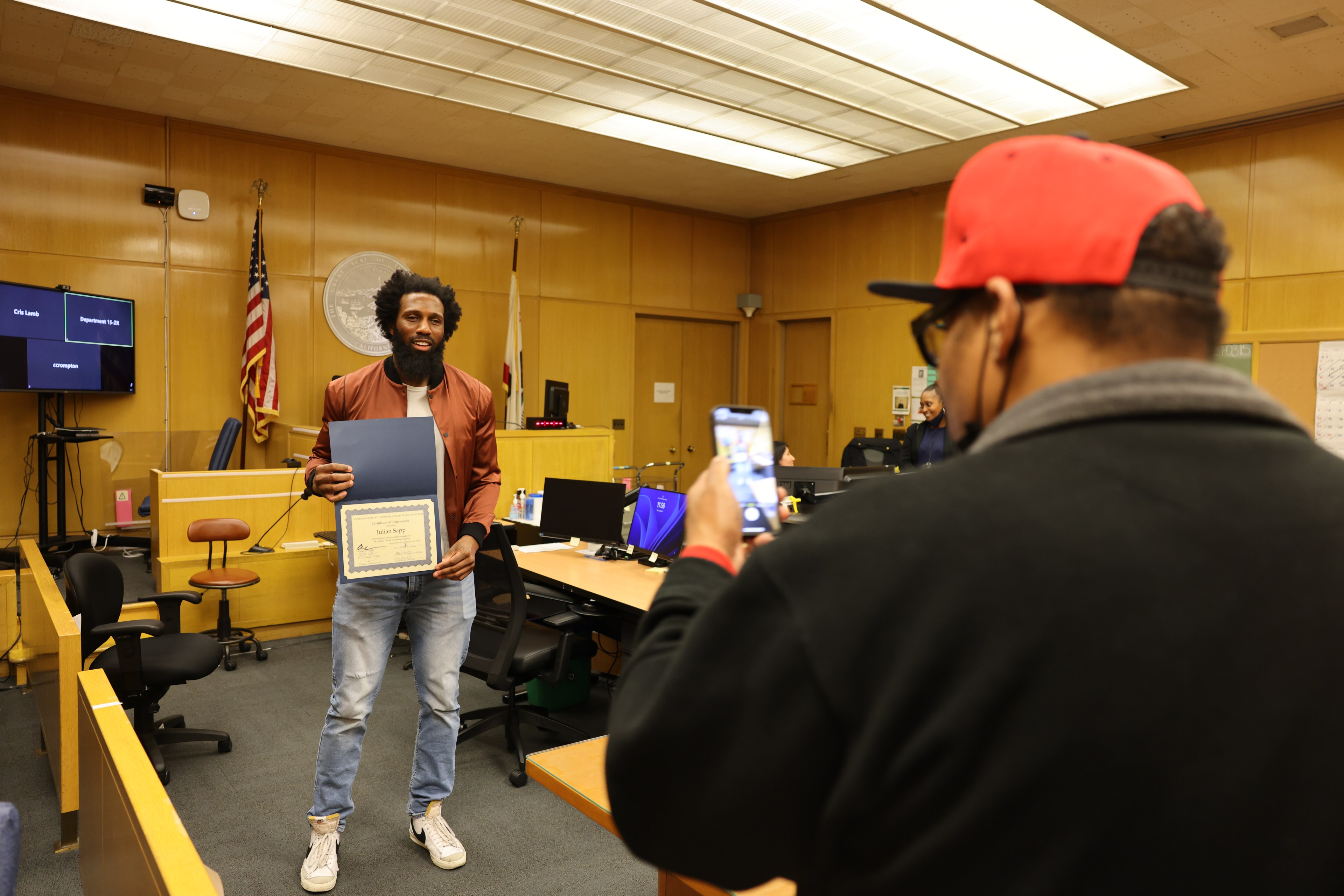A group of more than two dozen people gathered at the San Francisco Hall of Justice on Thursday morning to celebrate their graduation from the city’s behavioral health court—and the expungement of all or part of their criminal histories.
Marked as the biggest graduating class in the court’s 20-year history, the 27 soon-to-be-alumni shed tears over heartfelt stories, sugary snacks and live music.
Many of the attendees were in jail two years ago, some for committing acts of violence and vandalism. Now, they find themselves gainfully employed and living in permanent housing.
San Francisco implemented the behavioral health court in 2002 in response to a growing number of people with histories of mental illness and drug addiction who had cycled through the city’s carceral system.
The program requires many participants to plead guilty before entering. If a judge decides that they’ve made adequate progress on treatment, education and employment, they may see their charges dropped.
“You’re all proving that you’re not your past,” Judge Charles Crompton said during the ceremony. “You’ve worked harder than it takes to become a lawyer or a judge. You’ve all inspired me.”
Among those honored on Thursday was Julian Sapp, a piano player and vocal coach who claimed he was on tour with Beyoncé in 2013 before his bipolar disorder and schizophrenic conditions sent him on a downward spiral.
Sapp said he went from sleeping on friends’ couches to sleeping in homeless shelters and, eventually, on San Francisco’s streets. He recounted meth-fueled crimes of vandalism, arson and eventually stealing a car in what he described as a desperate cry for help.
“When I first got here, I felt like I was lifeless,” Sapp told The Standard. “But people here really care about you. […] They picked me up.”
Sapp said he’s now sober and focused on making an album and performing at local events.
Phillip Jones, another behavioral health court graduate, said he spent much of his younger years in a revolving door of the carceral system. Jones said he’s now nearing his master’s degree in social work at San Francisco State University.
“Not everyone who makes a mistake is a reflection of ill intent,” Jones said. “I was just having a hard time, struggling with substance abuse and mental health.”
The city’s diversion courts came under scrutiny last year after former District Attorney Chesa Boudin made the practice a priority of his office amid rising concerns about crime. Critics insist that the city was letting criminals off too easy—even though many studies suggest that the alternative court system reduces recidivism.
After her appointment, District Attorney Brooke Jenkins alleged that her predecessor was sending drug dealers who didn’t have an interest in changing their lives to the special courts, introducing a policy that prohibited her office from making such referrals.
Melanie Kushnir-Pappalardo, director of the collaborative court system, contends that graduating from one of the special court programs is actually more difficult than spending time in jail.
“It’s easy to do six months in jail,” Kushnir-Pappalardo said. “We’re asking people to do stuff that’s much more difficult.”
